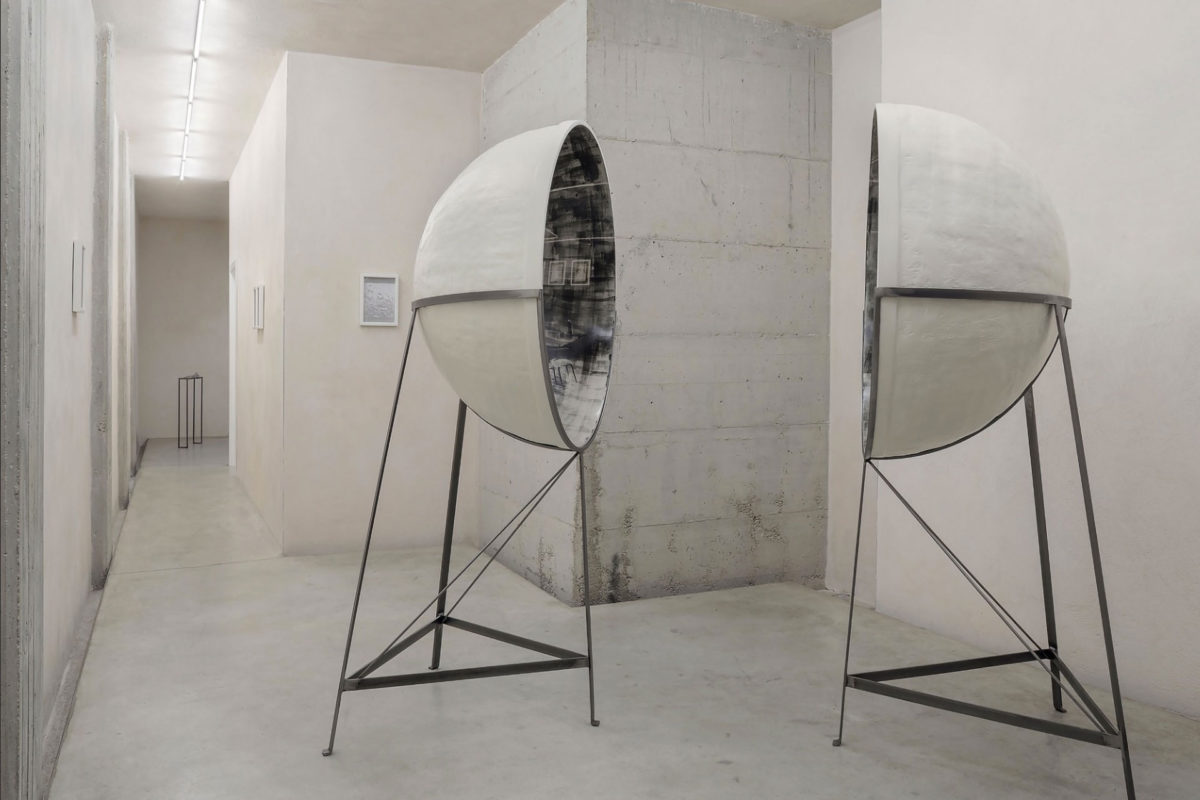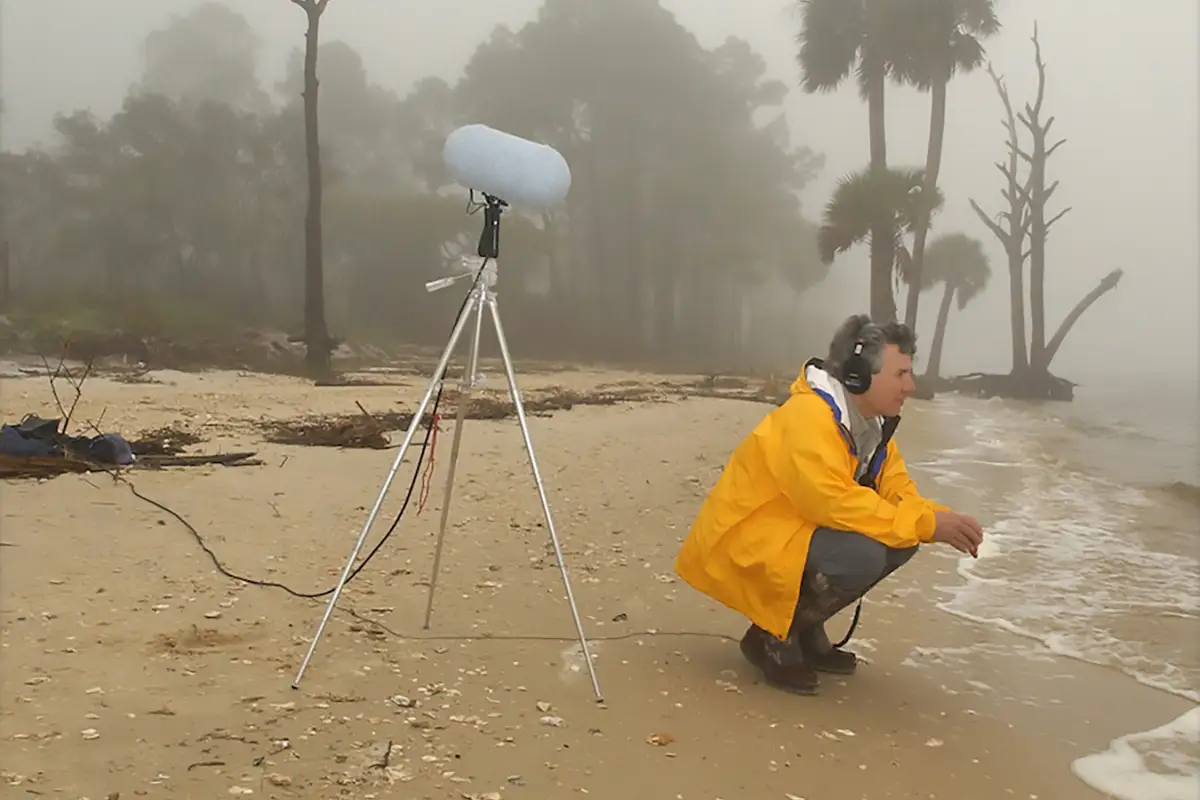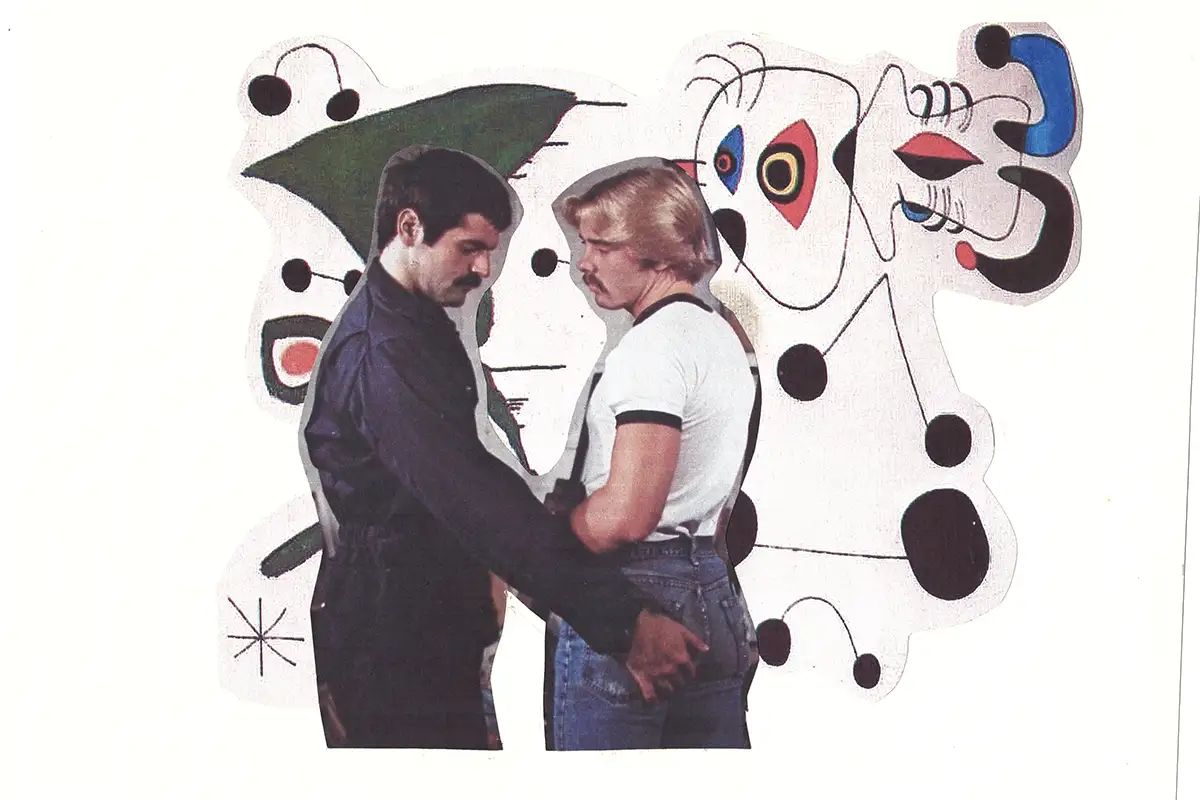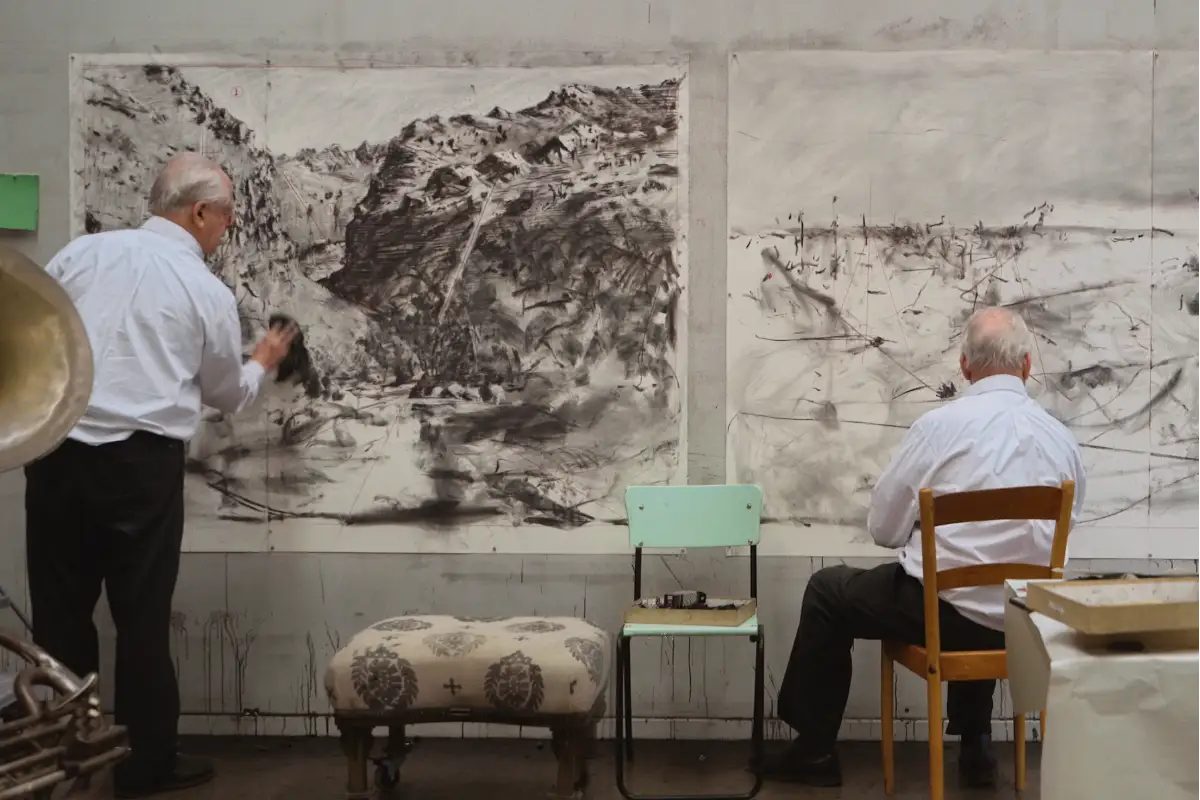The path of Alex Ott in his quest for an integrated planet. «Studies about the properties of the plants would damage the food industry, dominated by few powerful players»
Alex Ott – New York Times ‘sorcerer’
Introductions are meant to be a formality — in the case of Alex Ott, that is in itself a conundrum. With our first written exchange I learn that Alex holds a PhD in Molecular Biology and is versed in nutritional biochemistry, space food systems, flavor science and disease prevention. I am tempted to google his name and here the plot thickens as the clues diverge. Top results define him as a mixologist, botanist cocktail-maker, bartender.
Further down the page, I come to discover Alex has appeared in a few episodes of Sex and The City, where he served the ‘glam four’ his signature cocktails at the famed Sushi Samba, playing himself. He was responsible for opening the first location of the bar franchise on Park Ave, then 7th Ave, where he ran the celebrity-packed rooftop, before moving to South Beach Miami, then Chicago, then quitting after too much mediatic exposure of the brand finally ruined the late-night crowd of it all.
The search is giving me information overload anxiety. The solution to the riddle is that Alex Ott is all of the above, and then some. The man whom the New York Times in 2011 called a ‘sorcerer’, a badge of honor that Alex wears with pride and a healthy bit of self-mocking humor, appears to me as the modern version of the Renaissance man: a scientist and a humanist at the same time, a philosopher-chemist seasoned in matters of the molecules as well as of the soul.
Alex Ott’s Background
Alex’s upbringing itself appears to have had all the ingredients for a wondrous mix. Born in Braunschweig, Germany, of a father who was an architect and jazz musician (hardly an amateur, having played alongside the likes of Dizzy Gillespie, George Benson and Miles Davis) and a mother who has worked as a baker, a nutritionist and owned a gym, Alex also benefited from a grandmother who raised him and taught the future biochemist everything she knew about cooking.
Due to his father’s job the family moved often, with stops in Turkey, Greece, Egypt, Algeria, Tunisia and finally Malindi, Kenya (prompting him to learn Swahili, for good measure, and playing with lions), where he was mainly homeschooled and given a very different childhood that he calls the most magical time ever. Back in Germany, Alex elected Organic Chemistry as his major and went on to obtain a PhD in Biochemistry and Molecular Biology, but shortly after moved to New York where he applied for Parson’s School of Design – as one does – and obtained a BFA in Product Design and Illustration in 3 years.
How arts and science can blend together
It was during this time that he become involved in the New York City nightlife and the film industry, where Alex got commissioned to draw conceptional designs and black and white ink storyboards for movies like The Matrix (with Fox Studios, which brought him to Sydney) and The Beach (working in Thailand).
Travelling back and forth from Australia to Thailand, Alex juggled bartending and storyboard drawing. He experienced a ‘road to Damascus’ moment. In December 1998, after having switched last-minute tickets with another passenger, he boarded Thai Airways flight 261 which crashed an hour and a half after having taken off from Bangkok killing 101 people. Alex survived and life changed after that.
Alex Ott’s Wood Wide Web vision of the world
Alex went back to his initial calling: the fascination with plants and the interest for their properties dates as far back as he can remember. Alex thinks of the world as a Wood Wide Web, a place where plants have abilities to communicate with each other and with humans. «Some of this science was already available thousands of years ago to humans, all the way back to ancient Egypt. A lot of knowledge got discarded or lost along the way. When I get invited to speak at scientific symposiums or universities a large number of doctors wonders why this knowledge is not part of their normal curriculum. Today studies about the healing properties of the plants and their components would damage the food and beverage industry which is dominated by a handful of powerful players only».
Processed foods, and the demonization of certain types of nutrients
You are what you eat is a simple adage that Alex believes holds as true as ever today; unfortunately, he goes on to claim, we are getting used to eat very badly because of processed foods, and the demonization of certain types of nutrients which are in fact necessary to the body. «there are thirty-seven trillion cells in the human body and thirty-nine trillion bacteria: the body needs fermentation and the fermented foods that a lot of people avoid instead. But everyone’s microbial mix is different. There is no such thing as a one-size-fits-all probiotic. The obsessive intake of unnecessary antibiotics, which is the normal and mindless medical practice today, is responsible for killing vital cells that sustain our life. Our immune system is highly damaged and constantly weak as a result».
‘Alex Ott Experiences‘ consult service
Making cocktails for the New York night scene has been a way-in to Alex’s biggest platform: celebrities who would meet him, consult with him and then try one of his Alex Ott Experiences a sought-after service, which quickly spread by word-of-mouth within the upper echelons of the entertainment industry. Since, as Alex maintains, entertainment rules America, he would use his social network as the sounding-board for his work.
Alex has consulted for the likes of Taylor Swift, Cara Delevingne, Amber Heard, 50 Cent, Swizz Beatz and Susan Sarandon on levels ranging from health and disease prevention to natural enhancement via nutrition tips and personal custom-made product developments. Every ingredient contained in the vials and pipettes gracing the shelves of Alex’s private studio in New York, from the most common to the rarest that he sources personally by travelling to the Amazon and Puerto Rican rainforests, the Changbai Mountains in China, Borneo, France and Germany, appears in the approved substances list of the FDA, although his creations are proprietary blends.
The personal consults are confidential
Sometimes they can take days, sometimes years, depending on the complexity of the issue. Alex Ott is not a practitioner, nor he prescribes medicines: he develops natural supplements for single individuals as well as for, and in partnership with, business companies, where he educates R&D department scientists and nudges them in the right direction. From bubble gum pop idols to CEOs and Nobel laureates, a set of bespoke products is created for each consultee, an array of cosmeceuticals, tinctures, sublingual or transdermal capsules, edible spheres, teas, herbal supplements.
The flavors are designed and curated specifically for the neurological scent profile of that client. The resulting remedy will grant the user a sensorial journey from their earlier childhood memories connected to, say, their favorite bread spread or the flowers in their grandmother’s garden, all the way to their present scent/memory timeline.
The process starts with a detailed questionnaire about the nutritional profile of the client, then moves on to their olfactory past, genetics, microbiome health (lab analysis support this phase), food and drugs habits. The resulting supplements are integrated into the daily lifestyle of the client with a view, for example, to enhance their cognitive performance, or to boost their immune system, or to combat obesity or their addictions, from smoking to drugs, or to find a healthier alternative to ADHD medicines, so widely and lightly prescribed to children in the US.
Alex Ott’s collaboration with GR8 and Big Pharma
In order to expand the reach of his research and innovative solutions, Alex has been working on a web-based equivalent of his lab experiences through his latest collaboration with GR8, a company that focuses on high-end food events like the Once Upon A Kitchen held in Miami last December, where Alex curated the drink portion of the experience hosted by the four world-renowned chefs Massimo Bottura, Mauro Colagreco, Alex Atala, and Antonio Bachour.
Alex has pledged to devolve half of the proceeds from the digital lab enterprise to charities of his choice, ranging from Doctors Without Borders to WWF, from Greenpeace (Alex has been an activist since the age of twelve) to organizations devoted to the fight against COVID-19.Alex has collaborated with Big Pharma, who ask him to consult on their research, as well as some of the largest corporations across the food, telecom, airline, credit, and banking industries. Alex’s believes that a deeper connection with plants and their untapped resources is possible, not only by extracting their juices in a chemist’s lab but also through responsible decision making with regards to politics and sustainable urban planning.
«urban farming and forestry programs such as community forestry, public gardens, hydroponics gardens in schools, training inmates in horticulture to aid in social re-integration are necessary projects. Integrating more plant life into architecture, not only in the suburbs, increases oxygen production drastically by absorbing air pollution. I’m thinking of state-of-the-art projects like the Bosco Verticale towers in Milan [by Boeri Studio, inaugurated in 2014]: we need to integrate our cities into nature, not the other way around».
Plants as a vital part of our system
Our modern botanist knows who came first on this planet. Humans, who appeared last on Earth by far, have harvested nature’s resources for too long and the result of this equivocation is apparent in our species’ struggle to design a sustainable way of cohabitating with plants and animals alike.
«By installing swift and osprey towers we would give birds a place to nest. My favorite invention is bio-receptive concrete to encourage moss and lichen and other plants to grow, where we would normally just have ugly and useless building materials. Using hydroponic technology inside buildings is a key topic of sustainability with regards to our food chain and education. Nature was here first and provided us with life, now it’s our turn to give back».
Acknowledging plants as a vital part of our system
Our scientist-philosopher doesn’t condone the notion that the endgame of technological advancement is a future in which chips shall be implanted into the heads of people while some beneficial plant extracts are made illegal by governments (see the controversy surrounding THC, one of the active ingredients of cannabis, for one).
If the basis of alchemy is, at its root, a meeting of souls, then a chemist will be aware that to experiment with other living organisms is tantamount to separating and reuniting the souls of different species with each-other, thus enhancing life and ultimately making people more human. A good human acknowledges plants as a vital part of our system, so much so that when you pass by the leafy branches of a tree dancing about the air on a windy day, Alex says, «you should definitely wave back!»; it is the least you can do.
Alex Ott
has created five signature Functional Beverages, most of which work with or without an alcoholic base. There’s the Neural Handshake, based on Acmella Oleracea, a daisy flower that boasts antiviral, antioxidant, antimicrobial, antihepatotoxic properties and activates ion cells in the brain in order to facilitate neural connections. The drink is also a panacea for hangovers, dry mouth, nausea, toothache and several skin conditions.




















